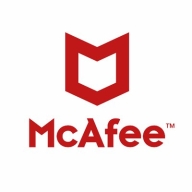


McAfee Total Protection for Data Loss Prevention and Symantec Data Loss Prevention compete in the data protection category, with Symantec having the upper hand due to its advanced feature set that users find worth the higher cost.
Features: McAfee Total Protection offers straightforward data loss prevention capabilities, a user-friendly administration system, and excellent endpoint security. Symantec Data Loss Prevention provides advanced network monitoring, rich data classification, and extensive endpoint and server protection.
Room for Improvement: McAfee could improve resource intensity on virtual machines, integration complexity, and advanced DLP features like better data matching. Symantec faces challenges with its complex installation process, high licensing costs due to Oracle dependency, and limited cloud capabilities.
Ease of Deployment and Customer Service: McAfee offers flexible deployment in on-premises and cloud environments but suffers from unhelpful technical support. Symantec, often deployed on-premises, combines with private cloud options and is criticized for slow support but usually resolves issues effectively once engaged.
Pricing and ROI: McAfee is less expensive than Symantec, offering good ROI but needing a deeper understanding of licensing layers. Symantec’s higher pricing, driven by Oracle licensing costs, is challenging for smaller firms yet justified by a comprehensive feature set providing substantial ROI over time.



Cloudflare is a highly-regarded Content Delivery Network (CDN) and a Distributed Denial-of-Service (DDoS) protection solution. The robust global connectivity cloud platform that is Cloudflare ensures users are able to connect to the Internet quickly, securely, and reliably. Cloudflare is one of the world's largest networks in the marketplace today. Using Cloudflare, businesses, educational entities, NGOs, vloggers, bloggers, and anyone else with an internet presence can experience more secure, faster websites and applications.
Currently, there are millions of Internet locations on Cloudflare, and the Cloudflare network
continues to grow every day by the thousands. The solution is able to fulfill the requests for
millions of websites seamlessly and serves on average 45 million HTTP requests per second.
Cloudflare has safe, secure data centers in close to 300 cities worldwide to ensure every
client request is filled as quickly as possible. It is Cloudflare’s edge network that makes this
possible by keeping content and other services as close to each client as possible, so the
information requests are always only seconds away.
Many organizations that work in democracy, civil society, human rights, or the arts are able to
access Cloudflare's highest levels of protection for free via Project Galileo. Additionally, official
election websites can be secured from hacking and fraud through Cloudflare’s Project
Athenian, also at no additional cost.
Cloudflare can also help organizations of all sizes develop a robust zero-trust strategy to
ensure the highest levels of productivity and profitability. Employees, stakeholders, and end users have a greater level of satisfaction and overall improved user experience, which can, in
turn, result in higher revenues and overall ROI. Zero-trust and BYOD (bring your own device)
access ensure end users and employees always have the best resources and technology
available to them at all times.
Cloudflare benefits
Cloudflare has many benefits. Some of its most valuable benefits include:
- Faster load times
- Robust DNS security
- Intuitive cloud Web Application Firewall (WAF)
- Free universal SSL
- Image enhancement
- Automatic browser caching
- Next-generation cloud load balancer
- Accelerated Mobile Pages (AMP)
- Rate limiting
- Minification
- Zero-trust capabilities
- Cost-effective
- Reduced carbon footprint
Reviews from real users
“Many websites require an SSL certificate because they sell stuff and want SSL. Cloudflare
comes with an SSL certificate built in. It's automatic. You sign yourself up for Cloudflare, and
an SSL certificate automatically protects your website. If you have a connection between your
website and your host, the server, Cloudflare, and the host, you don't necessarily need a
certificate.” Spencer M., Owner at Tech Exchange
“What I like best about Cloudflare is that my company can use it to trace and manage
applications and monitor traffic. The solution tells you if there's a spike in traffic. Cloudflare
also sends you a link to check your equipment and deployment and track it through peering,
so it's a valuable tool.” Daniel P., Network Engineer at Ufinet
“The most valuable feature of Cloudflare is the GUI. You are able to control the solution very
well through the interface. There is a lot of functionality that is embedded in the service.” PeerSpot user, Competence Center Manager at a tech services company
Keeping sensitive corporate information safe and compliant has never been easy. But today, you’re faced with a totally new set of data protection challenges. Sensitive information is leaving the safety of your corporate network as more employees share files over consumer cloud storage services and access those files on their own mobile devices. The number of targeted cyber attacks continues to grow, as cybercriminals develop effective new methods for defeating traditional security measures and stealing corporate information. And as all of these factors converge, it becomes increasingly difficult to manage corporate information and protect it against loss and theft.
Symantec Data Loss Prevention (DLP) provides a comprehensive approach to information protection that embraces today’s cloud- and mobile-centered realities. With DLP, you can:
• Discover where data is stored across all of your cloud, mobile, network, endpoint, and storage systems
• Monitor how data is being used, whether your employees are on or off the network
• Protect data from being leaked or stolen—no matter where it’s stored or how it’s used
We monitor all Data Loss Prevention (DLP) reviews to prevent fraudulent reviews and keep review quality high. We do not post reviews by company employees or direct competitors. We validate each review for authenticity via cross-reference with LinkedIn, and personal follow-up with the reviewer when necessary.